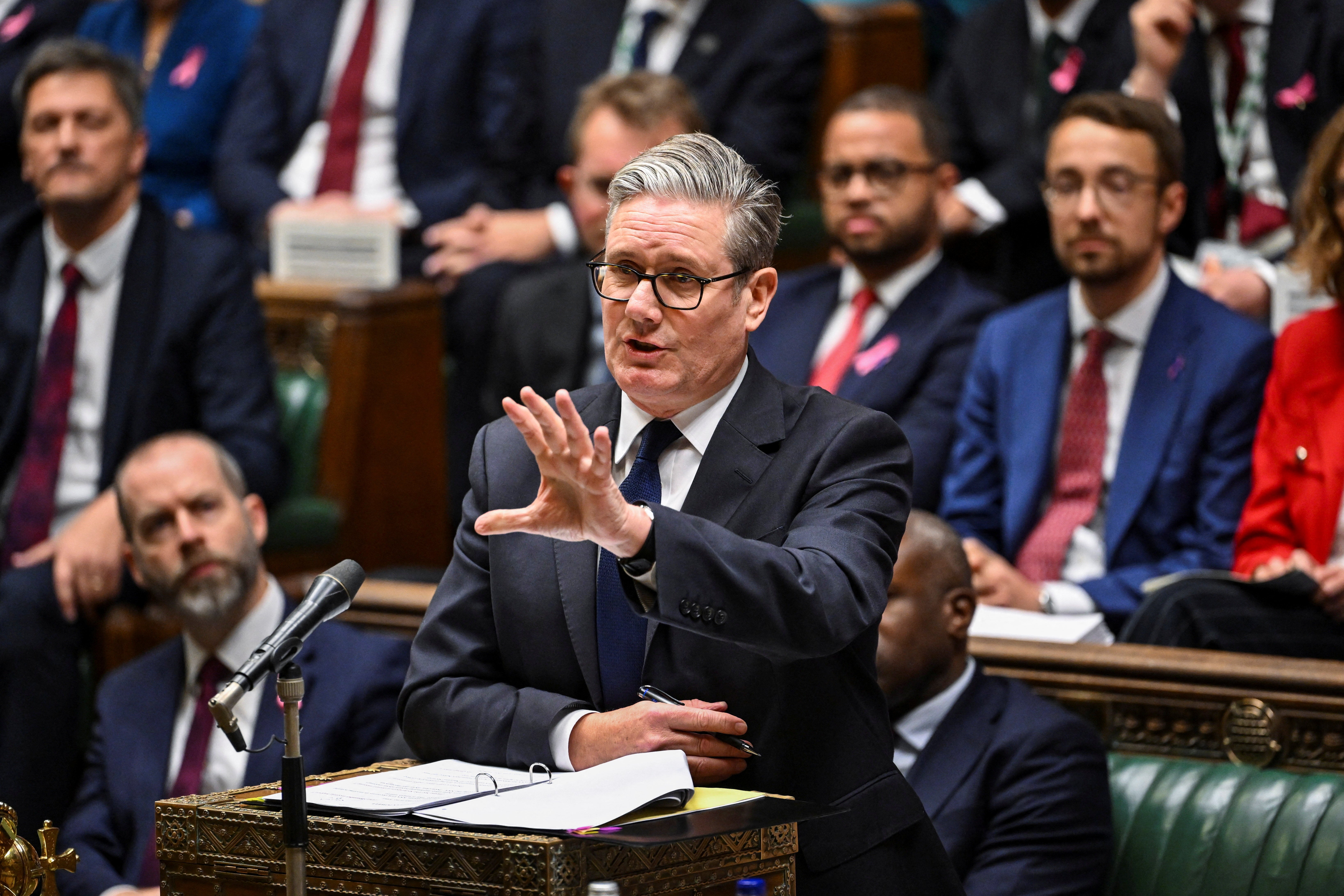The government’s deputy national security adviser repeatedly described the “threat” posed by China in witness statements Sir Keir Starmer has been forced to publish as part of an extraordinary row over a collapsed spying case.
The revelation comes as the Joint Committee on the National Security Strategy announced that it would be holding a formal inquiry into the collapse of the case, amid growing questions for both the Crown Prosecution Service and the government.
In the witness statement that was published on Wednesday evening, Matt Collins said Chinese intelligence services were “highly capable and conduct large-scale espionage operations” against the UK, which “threaten the UK’s economic prosperity and resilience and the integrity of our democratic institutions”.
But he added that the government was “committed to pursuing a positive relationship” with Beijing.
He also told prosecutors it was his assessment that the two men accused of spying for China acted in a way that was a danger to the “safety” and “interests” of the UK, handing over material that would be “useful” to the Chinese state. They deny any wrongdoing.
The release of the documents will pile pressure on the Crown Prosecution Service (CPS) to explain why it unexpectedly dropped charges against the two men, Christopher Cash and Christopher Berry.
The CPS has said the case collapsed because the government’s evidence did not show that China represented a threat to national security at the time of the alleged offences, which took place under the last Tory government.
Ministers hope the release of the documents will prove the Labour government did not force the case to collapse – and have now urged the head of the CPS to explain why the case was dropped.
Asked if director of public prosecutions (DPP) Stephen Parkinson was the right man for the job, minister Stephen Kinnock told Sky News: “I’m not going to comment on that”, adding: “I believe the DPP told MPs yesterday that he felt the evidence was 95 per cent of the way there, but there was a 5 per cent gap that was missing.
“I think he’s the best person to explain what that 5 per cent was missing was.”
But the Conservatives said they showed “the extent of the threat that China poses to the UK, and makes it all the more shocking that the prime minister knew of the imminent collapse of this trial, but did nothing to stop it”.
Speaking in the Commons on Thursday, Labour MP Matt Western, chair of the Joint Committee on the National Security Strategy, said there are “a lot of questions yet to be asked” and announced they would hold a “formal inquiry into the issue”.
Addressing Cabinet Office minister Chris Ward, he said: “We will be holding this inquiry as soon as we possibly can, and will he give his commitment that we will have access to ministers and civil servants or whoever we wish to come before us.”
Mr Ward insisted the government wanted to be as transparent as possible, adding: “I’ll come back to him on this precise mechanism of how we do that, but I’m sure people will be made available to his committee.”
But the Lib Dems called for the government to go further and launch a statutory inquiry, claiming the statements raised “more questions” than they answered.
In his first statement, Mr Collins said that evidence provided by police about the accused stated that Mr Berry had exchanged messages with “Alex”, an alleged Chinese agent, and met a senior member of the Chinese Communist Party. Mr Cash is said to have told Mr Berry: “You’re in spy territory now.”
Mr Collins said: “It is highly unlikely that one of the most senior officials in China would meet Mr Berry unless the Chinese state considered him to be someone who could obtain valuable information.”
He pointed to one occasion when Mr Berry was given 13 hours to provide information, saying that it “indicates to me that it may have been used to inform real-term decision-making”.
Information allegedly passed on included details about ministers likely to be promoted to the cabinet, as well as the position of the government on issues.

His statement concluded: “In my view, providing sensitive information of the kind passed by Mr Cash and Mr Berry to the Chinese state was prejudicial to the safety or interests of the UK as it gave the Chinese state a tactical or strategic advantage. The information and material passed would be directly or indirectly useful to China.”
Meanwhile, Mr Cash said he had been put in an “impossible position”.
He said: “I have not had the daylight of a public trial to show my innocence, and I should not have to take part in a trial by media. The statements that have been made public are completely devoid of the context that would have been given at trial.
“Furthermore, the assessments of the information shared would have been subject to a root and branch challenge. Those assessments would not have withstood the scrutiny of a public trial.”
In his final witness statement in August, Mr Collins discussed the “active espionage threat that China posed to the UK between 2021-23”.
He added: “As I said in my first statement, the Chinese Intelligence Services are highly capable and conduct large-scale espionage operations against the UK to advance the Chinese state’s interests and harm the interests and security of the UK.
“Chinese espionage operations threaten the UK’s economic prosperity and resilience and the integrity of our democratic institutions.”

But he also added: “It is important for me to emphasise, however, that the UK government is committed to pursuing a positive relationship with China to strengthen understanding, cooperation and stability.”
In an earlier statement in February 2024, he said China was “the biggest state-based threat to the UK’s economic security”.
He said a “wide range of UK government and commercial targets” had been attacked by “advanced persistent threat” (APT) groups, which had been attributed to China’s Ministry of State Security.
An APT “uses continuous, clandestine, and sophisticated hacking techniques to gain access to a system and remain inside for a prolonged period of time, with potentially destructive consequences”, Mr Collins said.
He added that in July 2021, the government attributed the hack of Microsoft Exchange servers to “the Chinese state-linked actors and judged that the purpose of the attack was highly likely to enable large-scale espionage.”
Starmer intervention in China spy case collapse would have been ‘absurd’ – No 10
Starmer orders review of antisemitism in NHS as part of wider crackdown
China spy case decision taken ‘purely’ by CPS – minister
‘You’re in spy territory now’: Bombshell evidence exposes details of China spy claims
Boris Johnson gushes over using ChatGPT while writing books: ‘I love it’
The China spy case evidence raises more questions than it answers







